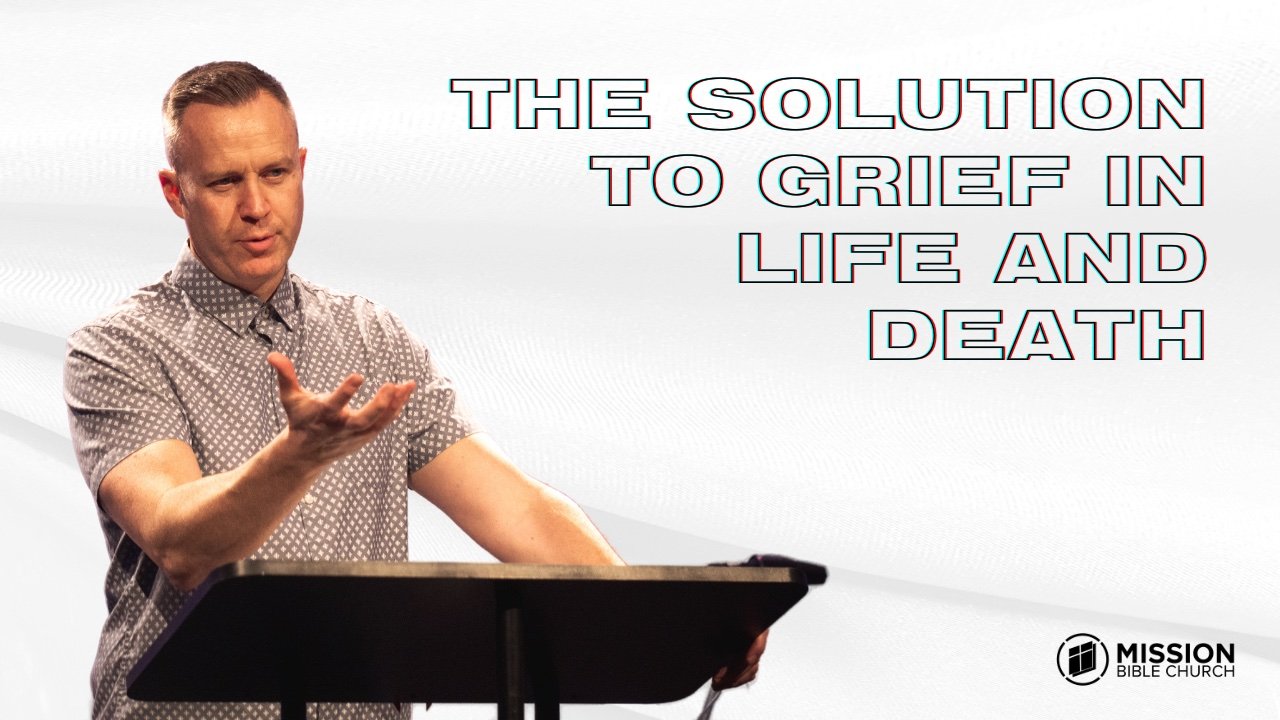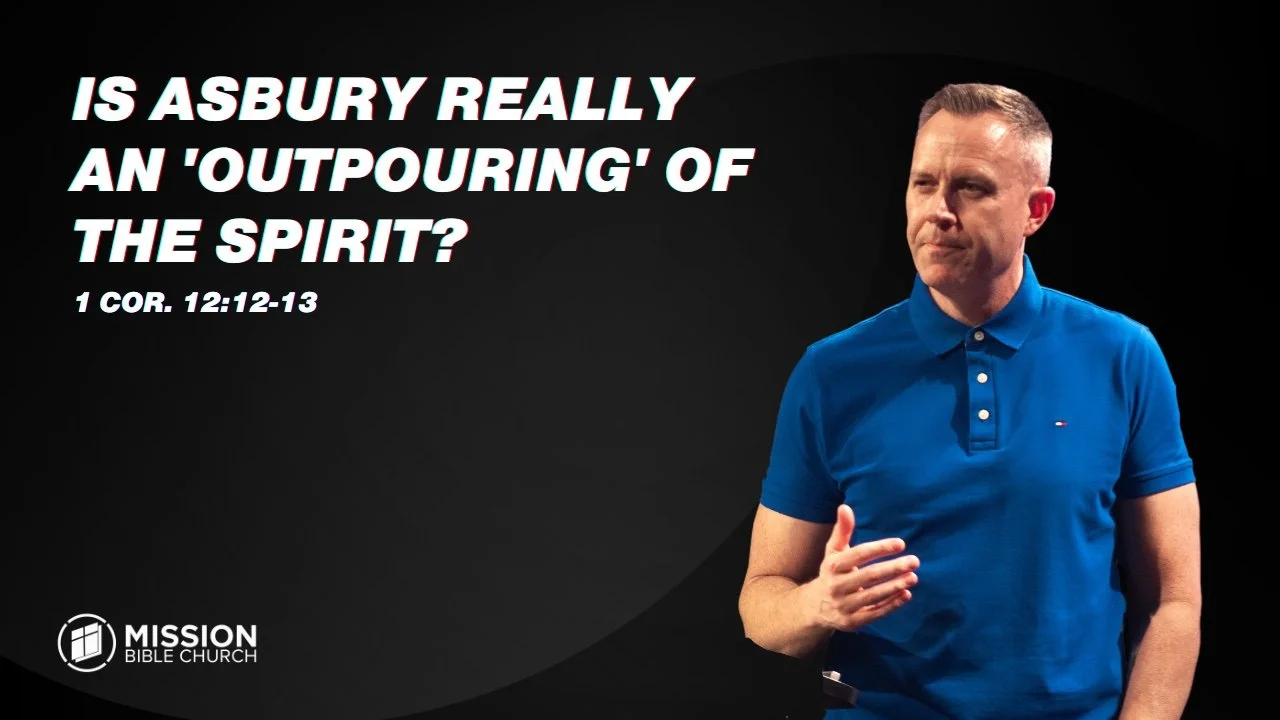Clean Series
A Study Through 1 Corinthians
In this concluding chapter, Paul commands the Christians to turn from their selfish pride and personal desires to instead "think bigger" about their support of God's work around the world; including, missionaries, faithful pastors, and their fellow church members.
When our Lord Jesus returns, He will not only resurrect His saints who are dead but will also transform those who are living. In these concluding verses of 1 Corinthians 15 we learn of a coming rapture for God's people along with how it must motivate our daily lifestyle.
In this fascinating portion of Scripture Paul responds to the critics asking, "How can our dead bodies be resurrected?" and "What will they be like?" And from his answer we learn that death is not an obstacle for God, but rather a condition of our eternal life and coming resurrection.
In this highly convincing paragraph, the apostle Paul clarifies the present realities for anyone who believes in a coming resurrection, and showcases how every true Christian will live in the present with the future always in mind.
In this special Father's Day message, we evaluate Paul's concluding commands to the church of Corinth, noting five marks of God's man, even as he stands against the torrents of secularized culture.
In this highpoint of Paul's instruction, He clarifies the hope of a believer's bodily resurrection, along with the stages leading to Christ's reign over all creation.
Christianity rests on whether Jesus physically rose from the dead. In this text, the apostle Paul summons voices from the 1st century to testify of Christ's resurrection, along with the life-changing impact this reality had on their lives.
After many chapters detailing the Corinthians sinful past, Paul makes the turn to describe their glorious future, including a coming bodily resurrection, and eternal life, but first clarifies that it's only possible through the gospel of Jesus Christ.
Part of Corinthian disorder was the disruptive outbursts of women, so in this important sermon, we'll evaluate God's intended design for women, both in how they relate to their local church, and how they respond to their husband's instruction.
Due to the Corinthians' egotistic understanding of ministry, their church services had degraded into showmanship and individual experiences. In this sermon we will perform a summary view of Paul's treatise against private fanaticism, for the sake of building up, and maintaining corporate order, within each local expression of Christ's church.
In this sermon we evaluate the gifts of prophecy, tongues, and knowledge, assessing the more technical matters associated, along with finding clarity on "the perfect" in which every believer should place their hope.
In the most beautiful chapter of the New Testament, Paul points out the fading nature of spiritual gifts, and the eternal treasure of love; reminding us that even if we're the most "gifted" Christian in the room, lest we serve in love, all our effort will be counted as waste.
Our world is filled with sin, sorrow, loss, and crisis. Even Christians who love Christ often feel overwhelmed by the pain and forget God's promises. On Easter morning, there was one young woman enduring such a moment, and John lets us peek into her beautiful story of restored faith and hope.
The Corinthians pursued showy gifts and ministry roles, turning their church into a display of human power, rather than a symphony of holy harmony led by the Spirit. In this message, we study Paul's warning to have the right attitude in relation to our spiritual gift, and how we use that gift to bless the body of Christ.
Over the past 30-years "faith healing" movements have mainstreamed in the evangelical church. In this message, we analyze the claims of these so-called healers, holding their ministry and teaching up against the New Testament.
In this message we'll review Ephesians 5 and Galatians 5, among other passages, to define the filling of the Holy Spirit, and ascertain the notable evidence of a Christian who is walking in daily yield to the Spirit's work.
Paul tells the Corinthians that their spiritual baptism was done in the past, and we find historical accounts of this throughout the Book of Acts. In this message, we examine the historical development of Acts, learning when and why the Holy Spirit was sent to Earth.
In recent days many are saying there is a new "revival" at Asbury University in Kentucky. Similar to many other "revivals" people are traveling hours to visit this small college town in order to "seek" God for an "outpouring" of the Holy Spirit. In this sermon, we study the roots of such revival, and work to define a true Baptism in the Holy Spirit.
The Spirit gives every Christian a gift to be used for the edification of others, and in this vital section of Scripture, Paul instructs the church about the beautiful variety and vital unity of true spiritual gifts.
Due to their immense pride, the Corinthians were abusing spiritual gifts, using them to bolster notoriety, instead of to honor Christ. So Paul responds, reminding them that true works of the Spirit will always point to Christ, and bring holy harmony, and edification, to the church.
The elitist Corinthians had turned communion into a status gathering; the rich enjoying their hors d'oeuvres in the dining room, while the poor ate leftovers on the back porch. Paul responds by canceling their love-feast, and calling the entire group to self-examination before they dare to eat again.
Similar to the modern American church, the church of Corinth had begun to blur and obfuscate genders, including the heart with which male and females arrived for worship. In this passage, Paul clarifies the proper church order for men and women, based on God's created design, and in the Godhead itself.
Due to the Corinthians' pride, they had begun to use their Christian freedoms to live with license, often causing others to stumble. So Paul responds, reminding them that a Christian's entire life exists for the glory of God and good of men.























